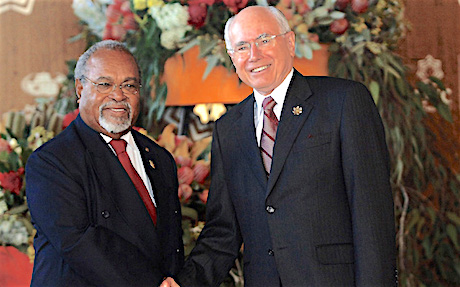The Melanesian Way could aptly be summed up as a democracy says Phil Fitzpatrick.
He points out that there are various definitions of democracy, “but the Oxford English Dictionary probably sums it up accurately saying it is ‘a system of government in which all the people of a state or polity… are involved in making decisions about its affairs, typically by voting to elect representatives to a parliament or similar assembly’.”
Fitzpatrick says this definition “aptly describes what people purport to call the Melanesian Way.”
“Consensus means the involvement of everyone in the community or society, which is the case of both democracy and the Melanesian Way.”
He says the perceived differences between western democracy and the Melanesian way lie in the application.
Democracy may exist at the grassroots level in Australia and its counterpart, the Melanesian Way, may exist at the grassroots level in Papua New Guinea but neither exists at the national level.
“In Australia we are run by greedy big business and the unions and in Papua New Guinea the nation is run by greedy big business, mostly from overseas, and individual and greedy politicians.”
Phil Fitzpatrick has worked with indigenous communities for over 45 years, principally in Australia and Papua New Guinea but including places in the Pacific such as Vanuatu and the Cook Islands.
Much of his work has been within the resources sector, particularly mining and petroleum exploration.
He has researched and carried out hundreds of surveys and conducted numerous detailed Native Title, social mapping and heritage studies.
Source
